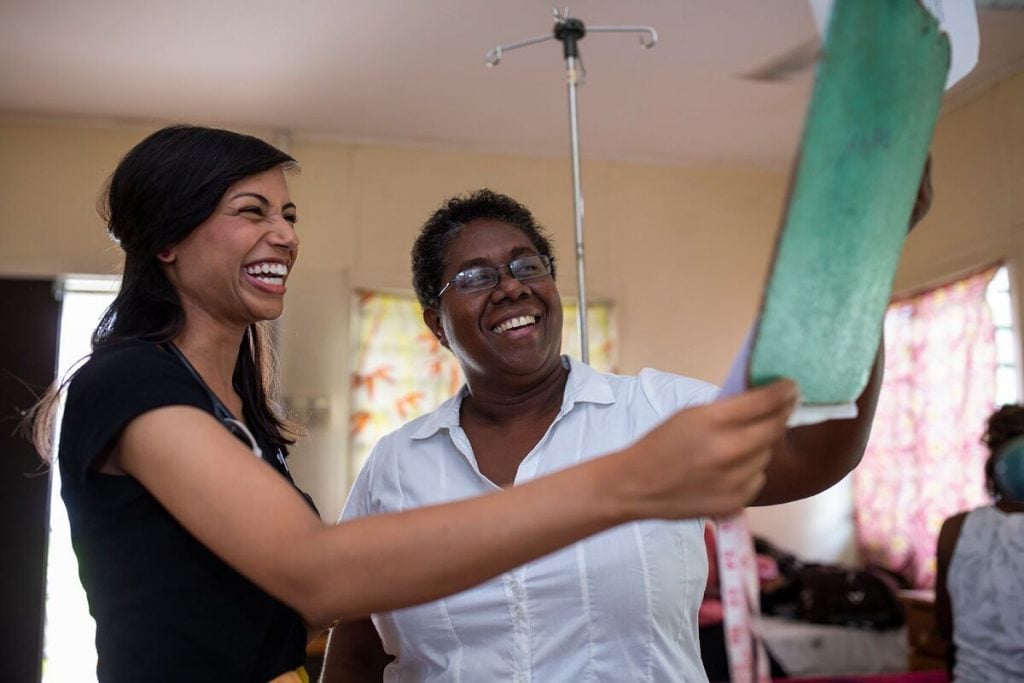Dr Rangi De Silva believes the key to successful development lays in workforce capacity-building. Looking for ways to translate this into practice, Rangi participated in the Australian Volunteers Program; an Australian Government initiative delivered by AVI that supports skilled Australians to contribute to locally-driven, sustainable development overseas.
De Silva volunteered from February to August 2018 as part of the Solomon Islands Graduate Internship Supervision and Support Project (SIGISSP). Funded by DFAT through the Australian High Commission, Honiara, the SIGISSP aims to develop the supervisory capacity of the Solomon Islands Ministry of Health and Medical Services in order to manage the large numbers of foreign-trained medical graduates (FTMG) returning to Solomon Islands. During her assignment, Rangi taught and mentored bridging interns and junior doctors. She also taught obstetric emergency medicine to midwives and junior doctors and research methods to O&G staff. In addition, she provided clinical services and assisted with clinical protocol development.
“There is so much value in providing clinical service provision, but I think education and capacity development and training is where you make a lasting difference, because when you leave hopefully what’s been taught will last”, says De Silva.

Rangi De Silva is an Australian volunteer on the Australian Volunteers Program, an Australian Government initiative. Here she stands with colleague Dr Leanne Panisi, the Head of Gynaecology and Obstetrics at the National Referral Hospital in Honiara, Solomon Islands / Harjono Djoyobisono, 2018 / [email protected]
Volunteering for SIGISSP taught Rangi the limitations that her O&G colleagues in the Pacific experience daily in their working lives; gaining a deeper understanding of the challenges faced daily by individuals and patients on the ground. However, she noted her volunteering has built resilience in the communities she worked with.
“Those bridging interns are the future of the medical system in the Solomon Islands. All of those interns will form the future of the doctors in the hospitals and the provinces. I hope the research that we started will help build resilience. I hope that it gives clinicians and healthcare providers a voice for the problems and potential solutions that they see day to day.”
Noting that data is a powerful tool to provide to the Ministry of Health, Australian Government, WHO, and other influential partners and stakeholders to make a difference, Rangi has kept an ongoing relationship with her colleagues in the Solomon Islands. She will soon return to continue with her work on research methods education and finalise protocol development. She’s also looking forward to supporting the newly founded journal club and get new research projects underway.
Rangi wholeheartedly encourages her fellow RANZCOG members to volunteer overseas.
“Go for it! It’s such a great positive thing to do but think carefully of all the aspects of it as well as your own motivation. Having a good understanding of your goals helps you make the best impact you can and helps you be of benefit to the community.”
December 5 is International Volunteers Day, a time to celebrate the efforts and contributions of volunteers around the world. Today RANZCOG would like to acknowledge and celebrate Dr Rangi De Silva’s achievements along with all members who volunteer in Australia and overseas.


